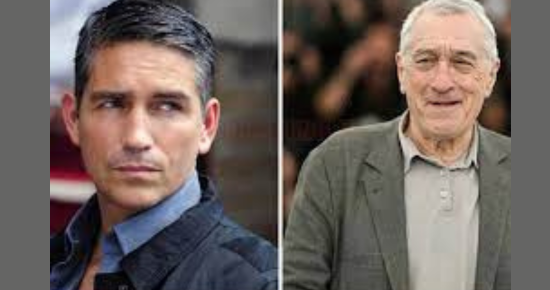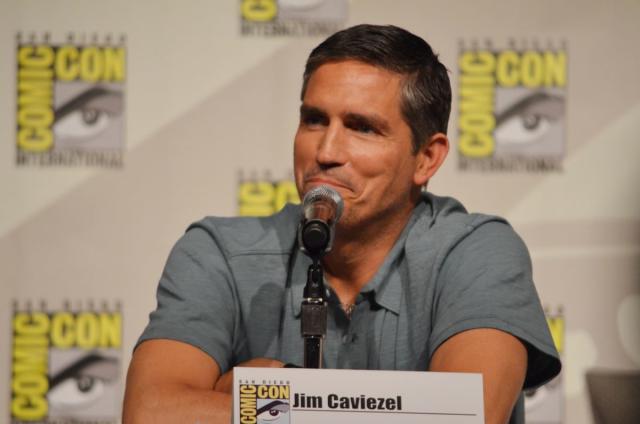Jim Caviezel Takes a Stand, Refusing to Work with Robert De Niro

In an unexpected twist within the realm of show business, the renowned Jim Caviezel has sparked considerable conversation by openly rejecting the idea of teaming up with celebrated actor Robert De Niro, describing him as a “terrible, godless man.” This shock announcement has reverberated across Tinseltown, prompting a flurry of debate regarding how personal beliefs intersect with professional partnerships. We delve into the nuances of Caviezel’s staunch resolution, his reasons for eschewing an association with De Niro, and the wider repercussions such a stance may have in the cinematic world.
Jim Caviezel, who famously took on the role of Jesus Christ in Mel Gibson’s “The Passion of the Christ,” is well-regarded for his devout Christian faith and for choosing film roles that honor his ethical standards. In contrast, the legendary Robert De Niro is celebrated for his versatile portrayals and his candid opinions on a range of social and political topics. The clash of Caviezel’s personal code of conduct with the inherent collaboration required in moviemaking is now under the industry’s microscope.

During a recent media conversation, Caviezel was questioned about prospective projects with De Niro, to which he sharply retorted, “I will not collaborate with Robert De Niro. He’s a terrible, godless man.” His use of such emphatic language immediately resonated with journalists and fans, sparking curiosity about the underpinnings of this apparent dispute.
Although Caviezel withheld specific grievances, the undercurrent of his stance seems to be a profound values mismatch. Given Caviezel’s vocal commitment to his faith and selectivity in choosing morally consistent roles, it appears he finds De Niro’s perceived public image or actions in discord with his own ethos. The ambiguity surrounding Caviezel’s comments has only intensified the buzz and speculation about the relationship dynamics in question.
The film industry has witnessed its fair share of actors drawing lines in the sand on a variety of matters, including their willingness to engage with certain counterparts. While opinions on Caviezel’s firm stance are polarized—with some praising his unwavering adherence to his principles and others critiquing the potential drawbacks of such public proclamations—the move is bound to have ripple effects in the world of cinema.
The refusal to partner with De Niro points to a larger conversation regarding how actors reconcile their private convictions with Hollywood’s often politically-charged milieu. The industry’s bedrock of creative diversity and freedom of expression is being tested as public figures increasingly prioritize personal ideology over traditional industry practices. This episode exemplifies a shifting Hollywood paradigm, where prioritizing personal beliefs may come with career implications.
Public statements in the entertainment business have proven to be double-edged swords, sometimes bolstering and other times undermining actors’ careers. Caviezel’s firm disavowal of working with De Niro may win him favor among those who share his values, but it also raises concerns about his prospective partnerships and the entertainment community’s reaction to such outspokenness.
Caviezel’s devout Christianity has been a hallmark of his public profile, especially post-“The Passion of the Christ.” His recent stand off with De Niro highlights the tension between personal integrity and the industry’s intricate and often morally gray landscape.
The implications stretch beyond the individuals involved to encompass the trajectory of Hollywood as a whole. Caviezel’s stance underscores the growing strain between individual principles and filmmaking collaboration. As performers increasingly voice their personal doctrines, the entertainment sphere might see a seismic shift with more professionals making principle-based choices.
Jim Caviezel’s choice to steer clear of working with Robert De Niro due to ethical disagreements has triggered dialogue around the balance of personal beliefs with career undertakings in Hollywood. This incident sheds light on a changing industry atmosphere where actors stand firmly by their convictions through vocal public statements that reflect their core beliefs.
The film-making world, as it grapples with these new challenges, finds itself contemplating the fragile harmony between individual morality and the essence of cinematic cooperation that characterizes the profession.


